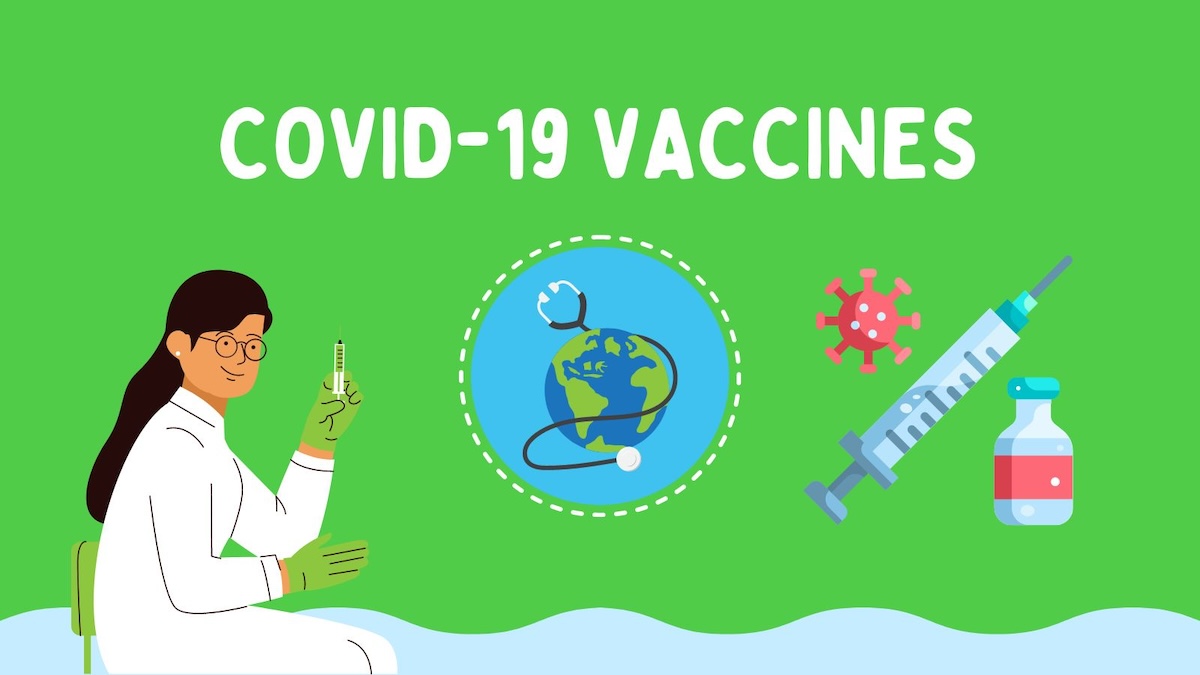COVID-19 vaccines have been a topic of conversation since the beginning of the pandemic. People often time have lot of questions regarding COVID-19 vaccines and aren’t sure if, when or why they should get one. This blog is going to delve into all of the current information available about COVID-19 vaccines including the different types available, the safety of the vaccines, and recommendations from the Centers for Disease Control and Prevention (CDC).
Types of COVID-19 vaccines, composition, and ingredients
There are two types of COVID-19 vaccines licensed or authorized in the United States, mRNA COVID-19 vaccines and protein subunit COVID-19 vaccines. None of the COVID-19 vaccines are preferred over another.
Pfizer-BioNTech and Moderna COVID-19 vaccines are mRNA vaccines. mRNA vaccines use mRNA created in a laboratory to teach our cells how to make a protein—or even just a piece of a protein—that triggers an immune response inside our bodies. The mRNA from the vaccines is broken down within a few days after vaccination and discarded from the body.
Novavax COVID-19 vaccine is a protein subunit vaccine and contains an ingredient called adjuvant. Adjuvant helps the immune system recognize the coronavirus. A person’s immune system will then make antibodies (“fighter cells”) that stay in a person’s blood to protect them in case they are infected with the virus.
Each of the manufacturers of the COVID-19 vaccines use different ingredients. None of the vaccines contain eggs, gelatin, latex, or preservatives. After the body produces an immune response, it discards all the vaccine ingredients, just as it would discard any substance that cells no longer need. This process is a part of normal body functioning.
None of the COVID-19 vaccines affect or interact with our DNA and the following are not included in the vaccines:
- No preservatives such as thimerosal or mercury or any other preservatives.
- No antibiotics such as sulfonamide or any other antibiotics.
- No medicines or therapeutics such as ivermectin or any other medications.
- No tissues such as aborted fetal cells, gelatin, or any materials from any animal.
- No food proteins such as eggs or egg products, gluten, peanuts, tree nuts, nut products, or any nut byproducts. (COVID-19 vaccines are not manufactured in facilities that produce food products).
- No metals such as iron, nickel, cobalt, titanium, or rare earth alloys. They also do not have any manufactured products like microelectronics, electrodes, carbon nanotubes or other nanostructures, or nanowire semiconductors.
- No latex. The vial stoppers used to hold the vaccine also do not contain latex.
Safety
According to the CDC, COVID-19 vaccines have undergone—and will continue to undergo—the most intensive safety monitoring in U.S. history. Evidence from the hundreds of millions of COVID-19 vaccines already administered in the United States, and the billions of vaccines administered globally, demonstrates that they are safe and effective.
Common side effects of the COVID-19 vaccine include:
- Pain, swelling, and redness on the arm where the shot was given.
- Tiredness, headache, muscle pain
- Chills
- Nausea
- Fever
Some people experience these side effects within 7 days of getting vaccinated but are mostly mild. Side effects throughout the body (such as fever, chills, tiredness, and headache) are more common after the second dose of a Pfizer-BioNTech, Moderna, or Novavax COVID-19 vaccine.
Adverse Events of the COVID-19 vaccine include:
- Severe allergic reactions to all vaccines are rare but can happen.
- There is a rare risk of myocarditis and pericarditis associated with mRNA COVID-19 vaccination, mostly among males ages 12–39 years. The rare risk may be further reduced with a longer interval between the first and second dose.
- Cases of myocarditis and pericarditis have also been reported in people who received Novavax COVID-19 vaccine.
- CDC continues to investigate long-term effects of myocarditis. Initial findings show nearly all patients have recovered.
CDC COVID-19 vaccine recommendations
The CDC recommends the 2023–2024 updated COVID-19 vaccines: Pfizer-BioNTech, Moderna, or Novavax, to protect against serious illness from COVID-19. People who are up to date on their COVID-19 vaccines have a lower risk of severe illness, hospitalization, and death from COVID-19 than people who are unvaccinated or who have not completed the recommended doses. Additional updated COVID-19 vaccine doses/boosters can help restore protection that has decreased since previous vaccination.
Vaccine recommendations are based on age, and in some cases, time since last dose, the first vaccine received, and immunocompromised status.
Here are the current CDC vaccine recommendations based on age
- Everyone aged 5 years and older ‡ should get 1 dose of an updated COVID-19 vaccine to protect against serious illness from COVID-19.
- Children aged 6 months–4 years need multiple doses of COVID-19 vaccines to be up to date, including at least 1 dose of updated COVID-19 vaccine.
- People who are moderately or severely immunocompromised may get additional doses of updated COVID-19 vaccine.
- People aged 65 years and older who received 1 dose of any updated 2023-2024 COVID-19 vaccine (Pfizer-BioNTech, Moderna or Novavax) should receive 1 additional dose of an updated COVID-19 vaccine at least 4 months after the previous updated dose.
Still have additional questions about COVID-19 vaccines? Visit these CDC resources Overview of COVID-19 Vaccines | CDC and Stay Up to Date with COVID-19 Vaccines | CDC. Additionally, you can visit the Washington State Department of Health (DOH) COVID-19 vaccine website at COVID-19 Vaccine Information | Washington State Department of Health.
This article is made possible in part by the Washington State Department of Health through a grant from the Centers for Disease Control and Prevention.
Resources
Overview of COVID-19 Vaccines | CDC
Stay Up to Date with COVID-19 Vaccines | CDC

